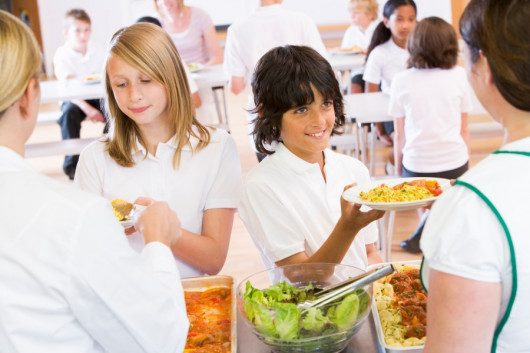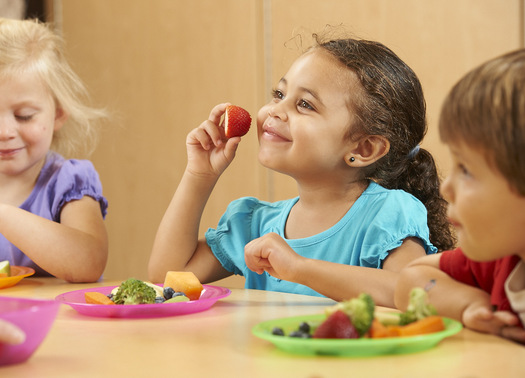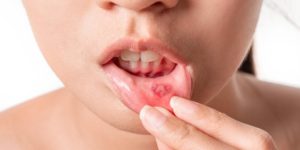A healthy nutrition of schoolchildren is designed to promote good functioning and proper development of the young organisms. A balanced menu of canteens in educational institutions, which includes all the necessary useful products, should fully meet the child’s needs for energy and vitamins.
The Importance for Students to Eat Healthy Food
Food has a special role in the growth and development of the child. It strengthens the body, directly affects the academic performance and diligence. When there are not enough useful elements, the body begins to malfunction, health problems appear.
Diseases of the gastrointestinal tract very often develop in children aged six years. A peak of the illnesses can be observed in 12-18 years. One of the important reasons that leads to disturbances in the digestive work is irregular and improper nutrition. If the child consumes a lot of peppery and fried food, marinades, canned products, sweet drinks, there will be problems, especially when the right regime of the day is not observed, and there is a habit of eating fast.
School meals should be varied, moderate and balanced. These are the most important rules to consider. It is necessary to think about the energy value of the consumed products. It should be not higher than the energy expenditure of the organism. An optimal ratio of proteins, carbohydrates, fats, vitamins, and amino acids should be observed.
Secrets of a Healthy School Nutrition
There are certain rules which should be taken into account when compiling a school menu that should provide a normal development of the young organisms. If they will be observed, kids will grow strong and healthy. Such recommendations are useful to all heads of educational institutions.

- There should be no fast food, hamburgers, chips, French fries, carbonated drinks in the school canteen. Such food is harmful not only for children but also for adults.
- Pupils need to eat several times a day, four or five. Two meals are usually consumed at school (breakfast and lunch). It is especially important to always eat at the same time.
- Excessive consumption of dry food contributes to the development of gastritis and gastrointestinal problems.
- High-protein products (meat, eggs, fish) should be given to the schoolchildren in the first half of the day, that is, at school time, because they have a long digestion period and stimulate the activity of the nervous system.
- The diet should contain fat: both the brain and nervous tissue need it in the same way as the body. If children often suffer from respiratory diseases, this indicates a lack of fat in the diet. Its amount should be comparable to the amount of protein (on average, from 80 to 120 g).
- Each meal should contain a product with fiber: bread, potatoes, cereals, pasta, vegetables and fruits.
- It is useful to eat bread and bakery products if the wholegrain flour was used for their production.
- Kids should consume a lot of vegetables, fruits, juices every day. It is better to alternate several kinds, since each contains a certain set of nutrients.
- It is desirable to limit the salt use when preparing food. The only exception is its iodinated variety, which may be used for the salting after cooking.
- It is better to exclude spices and condiments, sauces, mayonnaise, vinegar from the menu.
- Sugar and confectionery should be consumed in limited quantities. Of course, sometimes, schoolchildren should get cakes and candies (not to create the impression that they are in prison), but sweets cannot be included in the diet for every day.
- Dishes should be steamed or boiled. It is important not to overdo it with heat treatment. Otherwise, all useful substances will be lost. It’s better to eat the fresh fruits and vegetables during the season of their growth.
- A growing organism needs calcium, so dairy products must be included in the menu in the form of two glasses of milk, or 200 g of cottage cheese and products with it, yogurts and hard cheeses. At least 60% of the protein in the diet should be of animal origin. In a week, child should eat 4-5 boiled or fried eggs.
- As a source of antioxidants, it is good to use red grape varieties, tomatoes and cabbage (especially sauerkraut).
- To stimulate blood circulation and enhance the antibacterial properties of blood, 2-3 cloves of garlic should be included in the daily ration. Fresh onions may be used in the same way. They are both natural antibiotics, which destroy pathogenic bacteria and improve the tone of blood vessels.
- It’s worth excluding coffee from sale in school canteens, as many researchers call this drink a drug.
- It is also necessary to ensure that kids drink a lot of clean water.
- It is strictly forbidden to drink after eating to avoid deterioration of fermentation in the stomach.
Kids should acquire the right feeding habits. It is important for the authorities not to save funds on their health. Although a well-balanced diet can be compiled not only from expensive products. It is not difficult to find healthy and cheap options on the market. The main thing is a varied diet and competent cooking. Just don’t be lazy and fill the lunch box not with ready-made sandwiches but with some healthy bites.

For breakfast, it’s worth preparing something hot. It can be porridge, potatoes or pasta. Fruits and vegetables are a great addition. Or better check these 21 healthy breakfast recipes. Suitable drinks are tea and juice. Teachers should not hurry pupils if they eat slowly. And it is also not recommended to use a forcing tactic. Then, in the future, there will be no problems with weight.
Natural juice without preservatives and sugar, sandwiches, fruits, cookies may be used as a snack before a lunch. After several hours, it’s worth eating a hot dish. It can be a light cream soup with herbs – tasty and healthy. Also, it is necessary to serve the second dish with vegetables, for example, stew.
It is very important to choose the right size of portions. School nutrition should be qualitative and full-fledged, but overfeeding is also harmful.
Observation of these simple and important recommendations will help kids to be healthy, energetic, strong and happy. If you study on the specialty of a nutritionist, you can raise the relevant issue of school feeding in an essay or thesis. To get high-quality and interesting work, it is better to turn to a reliable essay writer service.



